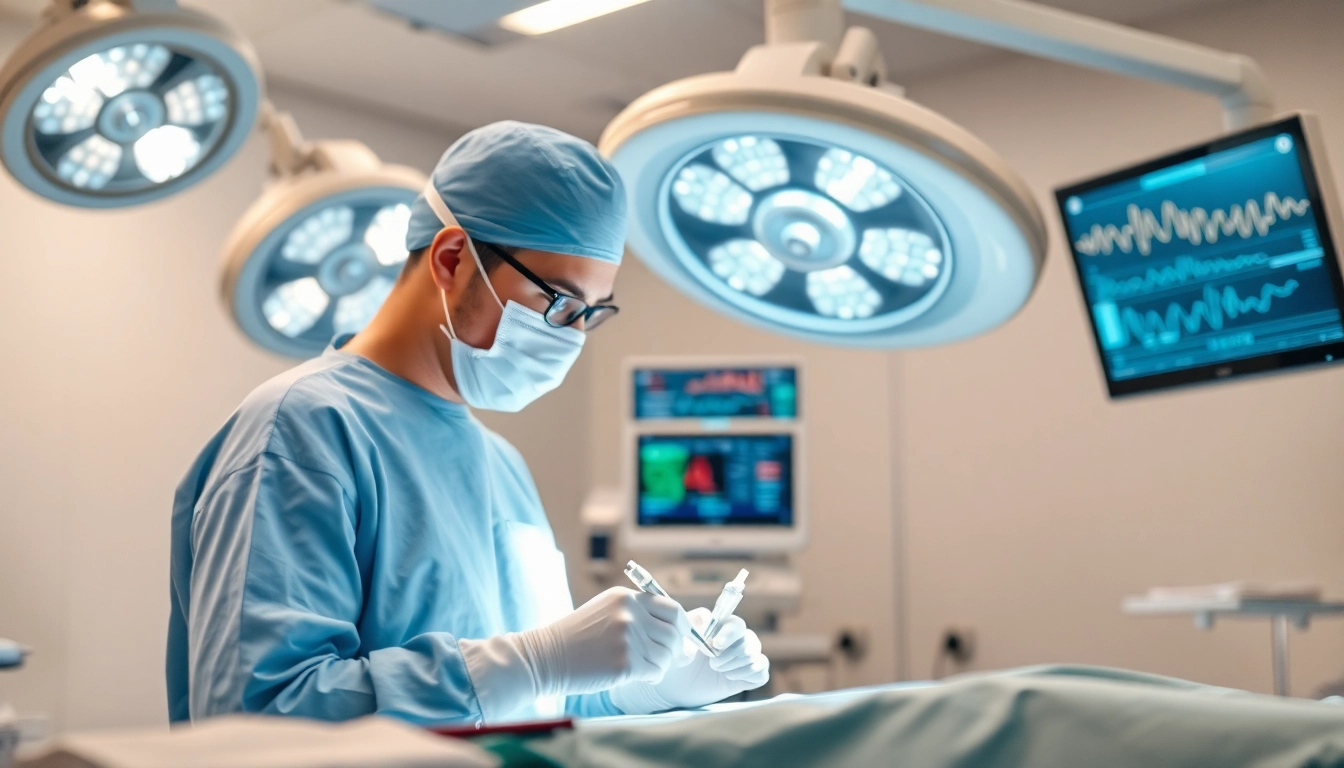Understanding Acne: Causes and Types
Acne is a persistent skin condition that affects individuals of all ages, but it’s particularly common during adolescence. Understanding what causes acne and the various types that exist is essential for effective management and treatment. Acne Treatment can be tailored to individual needs, based on these factors.
What Causes Acne?
At its core, acne occurs when hair follicles become clogged with oil and dead skin cells. This process can be influenced by several factors:
- Hormones: Androgens, male hormones produced in both men and women, increase the size and activity of sebaceous (oil) glands, which can lead to acne.
- Diet: Some studies suggest a correlation between high glycemic index foods, dairy consumption, and acne severity.
- Genetics: A family history of acne can predispose individuals to develop the condition.
- Bacteria: The presence of Propionibacterium acnes bacteria in the skin can exacerbate inflammation and lead to pustules and cysts.
Different Types of Acne
Acne can manifest in several forms, each requiring a different approach to treatment:
- Comedonal Acne: Characterized by whiteheads and blackheads, this type occurs when hair follicles are clogged.
- Inflammatory Acne: This includes papules and pustules, which are inflamed lesions that can be painful and red.
- Acne Cysts: These are large, pus-filled formations that can lead to scarring if not treated appropriately.
- Acne Vulgaris: The most common form, affecting a large segment of the population, particularly teenagers.
Identifying Your Skin Type for Treatment
Understanding your skin type is crucial for choosing an effective treatment plan:
- Oily Skin: This type tends to produce excess oil, leading to acne. Treatments should focus on oil-control and minimizing pores.
- Dry Skin: While it may seem counterintuitive, dry skin can also develop acne if it becomes dehydrated, leading to excess oil production. Hydrating ingredients are crucial here.
- Combination Skin: This type may exhibit characteristics of both oily and dry skin, requiring a balanced approach in treatment.
- Sensitive Skin: Individuals with sensitive skin must use gentle products to avoid irritation, which can worsen acne.
Common Acne Treatment Options
With numerous treatments available for acne, it’s essential to choose the one that aligns best with your skin condition and concerns. Each treatment option can be classified into topical and oral treatments.
Topical Treatments Explained
Topical treatments are often the first line of defense against acne. These are applied directly to the skin and include:
- Benzoyl Peroxide: This antibacterial agent helps kill acne-causing bacteria and reduces inflammation. It is available in various concentrations.
- Salicylic Acid: Effective for unclogging pores, salicylic acid is beneficial for both the treatment and prevention of acne.
- Retinoids: Topical retinoids, such as tretinoin and adapalene, promote skin cell turnover and prevent pore clogging.
- Topical Antibiotics: These can reduce bacteria and inflammation on the skin surface, often combined with other medicated treatments.
Oral Medications for Severe Cases
For moderate to severe acne, oral medications may be necessary. They include:
- Antibiotics: Oral antibiotics, such as tetracycline, minocycline, or doxycycline, can significantly reduce acne bacteria and inflammation.
- Hormonal Treatments: For women, birth control pills can regulate hormones that trigger acne.
- Isotretinoin: As a powerful considered last-resort treatment, isotretinoin addresses severe cystic acne, significantly reducing oil gland size and activity.
Advanced Treatments: Light Therapy and More
Beyond topical and oral medications, advanced treatment options are growing in popularity:
- Light and Laser Therapy: These treatments use specific wavelengths to target acne bacteria and reduce inflammation.
- Chemical Peels: Chemical solutions are applied to exfoliate dead skin and unclog pores, promoting new skin growth.
- Microdermabrasion: This non-invasive procedure exfoliates the skin’s surface to improve texture and appearance.
- Extraction Therapy: (Performed by dermatologists) This involves the manual extraction of clogged pores to alleviate the severity of breakouts.
Best Practices for Managing Acne
Effective acne management combines appropriate treatments with positive lifestyle changes. Establishing a holistic approach will yield the best long-term results.
Daily Skin Care Routine Tips
A consistent skincare routine is foundational for managing acne:
- Use a gentle cleanser daily to remove dirt and excess oil.
- Incorporate non-comedogenic moisturizers to hydrate your skin without clogging pores.
- Exfoliate regularly (1-2 times a week) to remove dead skin cells, preventing pore blockages.
- Always wear sunscreen to protect your skin from UV damage, especially when using retinoids or chemical treatments.
Dietary Considerations for Healthy Skin
The food you consume can directly impact your skin’s health. Some dietary adjustments include:
- Avoid high-glycemic foods (like white bread and sugary snacks) that can lead to increased insulin levels and subsequently, oil production.
- Increase fruits and vegetables rich in antioxidants to help combat inflammation.
- Incorporate omega-3 fatty acids found in fish, walnuts, and flaxseeds to regulate oil production.
Mental Health and Acne: Addressing the Emotional Impact
Acne can have significant psychological effects, leading to anxiety and low self-esteem. Address these aspects by:
- Engaging in stress-reducing activities such as exercise, yoga, or meditation.
- Seeking support from a therapist or support groups to address emotional distress associated with acne.
- Practicing self-compassion and maintaining a positive outlook regarding your appearance.
Effective Natural Remedies for Acne Treatment
While conventional treatments have proven efficacy, many prefer natural remedies for acne treatment. These can complement or serve as alternatives in mild cases.
Herbal Solutions and Essential Oils
Some natural ingredients have been found to help with acne:
- Tea Tree Oil: Known for its antibacterial properties, tea tree oil can reduce inflammation and redness.
- Aloe Vera: This soothing plant can hydrate the skin while providing anti-inflammatory benefits.
- Green Tea Extract: Rich in antioxidants, topical application of green tea can diminish acne lesions.
Home-Based Treatments You Can Try
Some simple home remedies that may provide relief include:
- Honey Masks: Honey has natural antibacterial properties and can be used as a mask to soothe irritation.
- Apple Cider Vinegar: Diluted with water, it can help restore skin pH and reduce acne.
- Oatmeal Masks: Oatmeal can soothe inflamed skin and absorb excess oil when used in a mask.
When to Consult a Professional for Natural Options
It is essential to consult a dermatologist when:
- Breakouts worsen despite home treatment efforts.
- You experience severe side effects from any products.
- You have persistent or severe acne that may require prescription treatment.
Future of Acne Treatment: Innovations on the Horizon
As research in dermatology advances, the future of acne treatment looks promising with new discoveries and technologies.
Latest Research and Findings in Acne Treatment
Ongoing studies are exploring the role of the microbiome, hormonal fluctuations, and novel agents that could revolutionize standard treatments:
- Research on probiotic treatments is showing potential for balancing skin microbiota.
- Studies on metabolic pathways indicate new targets for pharmaceutical development aimed at acne-related hormones.
Emerging Technologies in Skin Health
Innovative technologies are enhancing acne treatment possibilities:
- At-home devices: Emerging handheld light and laser devices provide professional-grade treatments within the comfort of home.
- Artificial Intelligence: AI-driven solutions personalize skincare regimens and offer real-time skin assessments.
Customized Acne Treatment Plans
The future of acne management is moving toward personalization. Dermatologists are beginning to:
- Utilize genetic testing for tailored treatment approaches, ensuring that individuals receive the most suitable therapies.
- Adopt comprehensive modules that combine lifestyle assessments with conventional treatments.



